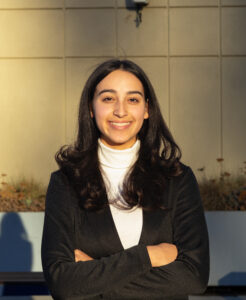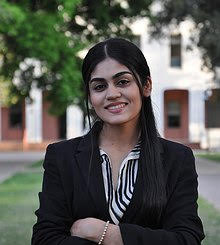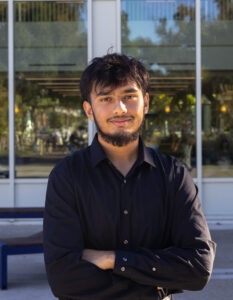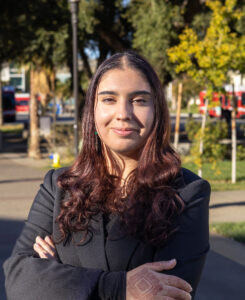The Editorial Board encourages you to consider student safety on campus, spending transparency and free speech when casting your ballot
By THE EDITORIAL BOARD
From Tuesday, Nov. 12 to Saturday, Nov. 16, students at UC Davis have the opportunity — for many, their first — to vote in the fall ASUCD elections. The California Aggie’s Editorial Board strongly encourages you to exercise your right to vote in student government elections, as the results of these elections have direct effects on you and other students at UC Davis. However, with 10 candidates running for the ASUCD Senate and one proposed amendment to the constitution, it is easy to feel overwhelmed when deciding how to cast your vote.
After holding interviews with the candidates, The California Aggie’s Editorial Board has compiled a list of endorsements for the fall election cycle but encourages you to thoroughly seek out information on each of the 10 candidates and come to your own conclusion when utilizing your right to vote. Undergraduate students can cast their digital ballot for six senators and Constitutional Amendment #92 on the ASUCD Elections website.
Note: Candidates Ryan Weber and Jorge Diaz were not able to participate in the endorsement interviews for this piece.
Solana Rodriguez (second-year, political science — public service):

While she isn’t one herself, Solana Rodriguez has prioritized improving opportunities for transfer students at UC Davis. In her work as a community advisor at The Green, Rodriguez has seen the need to improve outreach to these students. The Editorial Board was impressed by Rodriguez’s detailed platform and vision for ASUCD. She hopes to bring more awareness to cultural events on campus, such as highlighting El Centro and other Latino organizations in Davis. Her other priorities include improving housing and transportation issues, expanding lighting in dimly lit areas for campus safety and ensuring the senate has more fiscal responsibility in its spending bills. She believes that ASUCD can better use its budget by prioritizing student services over entertainment.
“Students can’t truly enjoy themselves if they feel unsafe or if their basic needs aren’t met,” Rodriguez said.
Given concerns about student safety, outreach and the budget — Rodriguez is exactly the kind of voice needed in the senate right now.
Nanki Kaur (third-year, biomedical engineering):

Despite it being her second time running for the senate, Nanki Kaur demonstrates her continued passion for the position along with her resilience. The Editorial Board was impressed by how well spoken and knowledgeable Kaur is on her proposed policies, which include creating a hotline for women’s safety on campus, increasing STEM representation and improving funding for basic needs. If elected, Kaur aims to expand the number of 24/7 study spaces available on campus, as well as work toward greater transparency between the student body, the senate and The California Aggie. Her priorities also include increasing specialized mental health resources and bringing awareness to Title IX and women’s resources on campus. With her strong voice and previous leadership experience, The Editorial Board believes she is a qualified candidate who is sure to serve the student population with their needs, thoughts and ideas in mind.
Umar Shaikh (second-year, political science):

The California Aggie has decided to endorse Umar Shaikh, a second-year political science major who is running for ASUCD Senate. Shaikh presented thorough knowledge on ASUCD units and expressed passion about enforcing student protections on campus in the face of recent policy changes, which majorly influenced his decision to run. His willingness to criticize the UC system and on-campus police involvement — as well as his belief that the UC system can be bettered as a result of student-given pressure — served as a refreshing reminder of the impacts students can directly have on their universities. He promoted EBT and food accessibility for students on campus and explained his plans to adopt the CoHo in order to work with the ASUCD unit that students likely interact with the most. In addition, Shaikh expressed that clarity and transparency among ASUCD and UC Davis administration is a key step to strengthening student-to-faculty relationships. His knowledge of specific legislation, prioritization of identity-based Registered Student Organizations (RSOs) on campus, his intent to fulfill transparency of student government processes and bridge the gap between students and the ASUCD make him a very compelling candidate for ASUCD Senate.
Jenna Younes (third-year, international relations):

Jenna Younes was inspired to run for senate after seeing the impact senators have made on campus. As a part of student leadership roles in multiple RSOs, Younes hopes to use her leadership skills for her position in the senate to be a voice for marginalized communities. The Editorial Board was impressed with Younes’ passion for transparency and ethical spending of the ASUCD budget. A priority for Younes is ensuring that the companies ASUCD does business with are environmentally and socially just. In addition to ensuring the ethical and transparent allocation of ASUCD funds, Younes emphasized the importance of allocating funds to basic needs services. One of Younes’ priorities is to address food insecurity and aims to accomplish this through work with The Pantry. Younes also hopes to enhance the outreach of ASUCD and increase social media representation. If elected to the senate, Younes hopes to adopt the Creative Media unit, Ethnic and Cultural Affairs Commission, the External Affairs Commission and The Pantry. Younes is an experienced leader and has an all-around students-first platform, which is why the Editorial Board backs Jenna Younes in this upcoming ASUCD Senate election.
Our thoughts on Constitutional Amendment #92:
The Editorial Board wants legislation passed that protects the privacy and security of all students on campus. Especially given the University Office of The President’s new policies with regards to protesting, an amendment protecting student privacy is more important than ever.
However, due to vague language in the proposed amendment, the Editorial Board does not offer Constitutional Amendment #92 a full endorsement. Instead, we recommend students read the full legislation and use their best judgment.
The proposed amendment should include a more detailed procedure for the ramifications of infringing on student privacy. The language of “ASUCD and the University are required to take any necessary and appropriate action to respect your privacy” does not provide a clear outline of how disciplinary action will be taken and the consequences administered.
The exception of “…when required by law or in accordance with other existing University policies” is vague and leaves room for interpretation on what situations are protected by the amendment. There is no example of existing University policies that would be exempt from this amendment.
The wording of “The University and ASUCD shall not disclose your personal information without your explicit consent,” is unclear and could easily be misinterpreted. The process for determining when explicit consent has been given is not present in the amendment and can make it difficult to ascertain when student privacy has been infringed upon.
Due to the subjective language and unclear procedures, the Editorial Board is concerned with what impact this amendment may have on free speech and press protections in the local community. The Editorial Board fully supports a constitutional amendment that protects student privacy but one that is specific and clear on how it could affect existing university policies and organizations.
Written by: The Editorial Board











